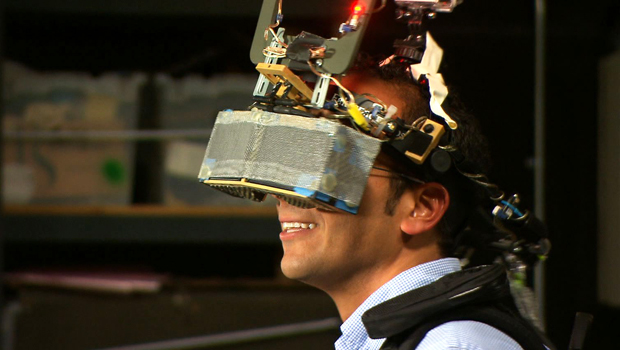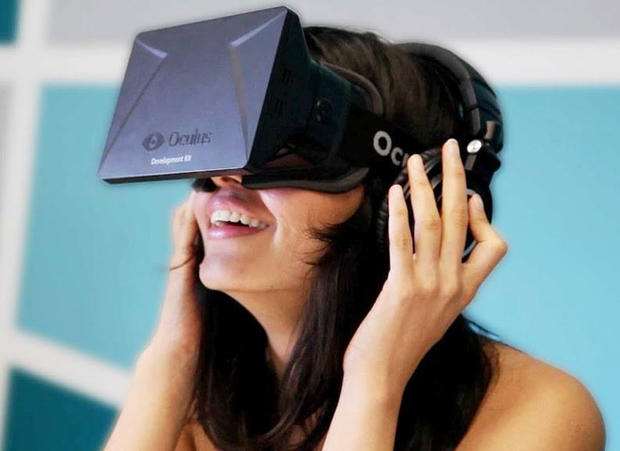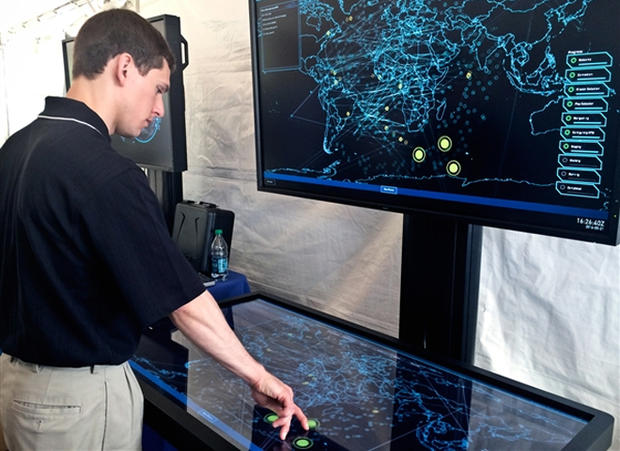Turning "virtual" reality into an everyday reality
Imagine the feeling of actually existing in a virtual space -- that's the true potential of virtual reality.
It's the technology that the University of Southern California's Institute for Creative Technologies has been working on for a few years now. The lab is at the forefront of virtual reality, a tech fantasy many say is virtually around the corner.
Research at the USC's Mixed Reality Lab is focused on turning "virtual" reality into an "everyday" reality.
"Virtual reality is about to take off in a way that I don't think anybody can fully comprehend," said USC professor Mark Bolas.
The origins of virtual reality date back nearly 30 years, but the technology struggled with uncomfortable headsets that often left users feeling nauseous. Now, stronger motion sensors and better displays are changing that -- and changing the future.
"The way people collaborate and communicate is going to shift, to where physical presence isn't as important as virtual presence," Bolas said.
He said it's as easy as putting on goggles: "And now you have basically all of humanity and the entire Internet at your disposal."
Bolas posted USC's findings and designs online for free. That helped a little-known start-up company named Oculus VR develop its own virtual reality headset, the Oculus Rift.
Their latest prototype caught the attention of Facebook CEO Mark Zuckerberg -- so much so, he decided to buy the company.
All eyes were on Oculus at this month's E3 video game conference in Los Angeles, but Wired magazine's Peter Rubin believes virtual reality will soon go far beyond gaming.
"This is where people are going to be socializing, going to be communicating, going to be consuming media, playing games, doing some work, getting educated, " Rubin said. "You can look at art; you're not behind a red rope looking at the Mona Lisa; you're up alongside the Mona Lisa and you're examining the pores on her face."
"Words With Friends" creator Paul Bettner was one of the first programmers to begin designing video games for Oculus. He's working on the game "Lucky Tales," made for the still-unreleased Oculus Rift headset.
Bettner said the technology offers consumers something they've never experienced before. "I think what it really offers is the childhood dream of being inside the game," Bettner said.
USC is now bringing the technology to the U.S. Navy. As part of a government contract, the university designed a virtual world that turns plastic tables into digital menus that can be used to man a ship.
Crews can even get a bird's-eye view without ever leaving the control room.
Bolas has also been working on a cheaper, more mobile version of the technology. He's pairing smartphones with $2 lenses and special software to create his own hand-made headsets.
"We see smartphones as a way that we brought computers out into the real world," said Bolas. "But virtual reality's really the way we're now gonna go into the virtual world. And I think it'll be as common as smartphones -- we'll all have one, and we'll bring them with us."
The Oculus headset will likely go on sale next year with a possible price tag around $300, and the anticipation surrounding the new virtual reality gear couldn't be any more real.


